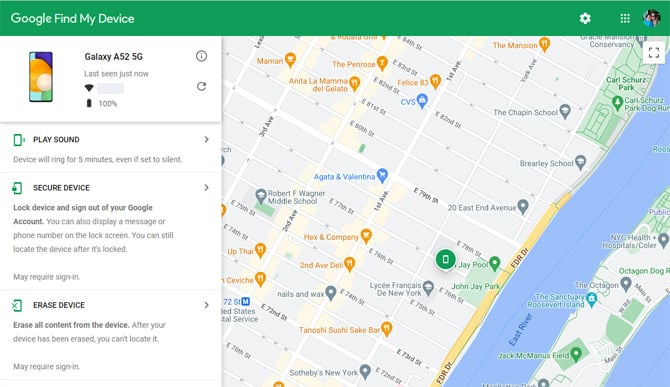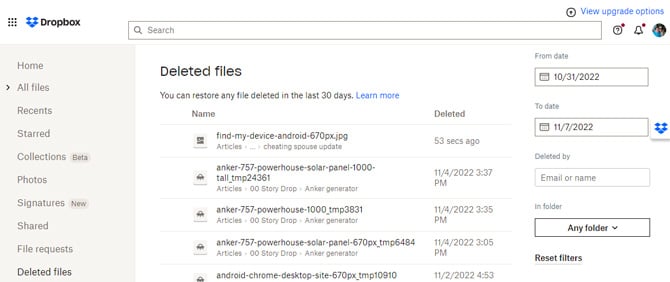Updated on 6/19/2023 with information on WhatsApp Chat Lock.
Lovers that are engaged in an affair can often be tripped up by the technology they use. In fact, there are many tech clues cheaters leave behind on their phones, computers, and other electronic gadgets that you can look for.
Tech clues to a cheating spouse: The basics
Calls on your spouse's cell phone
Are there numerous calls to numbers you don’t recognize, especially at odd hours of the day or night? You can often determine who owns a particular landline number simply by entering the number into Google search.
Names and numbers you don’t recognize
Chances are your spouse won’t take the risk of entering the full name of the person he or she is cheating with, so look for numbers that are identified merely with initials or a first name. Or, he or she may add a lover’s number to a family member's or friend’s contact entry to mask his or her identity. Also, look for suspicious names in their messaging and video chat apps.
Incriminating text messages and emails
Text messages and emails are the modern means of sending love letters, and your spouse may have kept them on his or her phone for ongoing enjoyment. And be sure to check the "deleted items" or "trash" folder. People frequently let their discarded emails linger for weeks before they're permanently erased.
Also, look for secondary messaging apps like Snapchat that are designed to temporarily share text messages, photos, and videos.
For Facebook Messenger, check to see if they have any Secret Conversations. Your spouse can have two conversations with the same person – one unencrypted and one encrypted.
If they're using WhatsApp, check for the presence of a Locked Chats list. You'll need to swipe down on the Chats list to uncover it. Another flag: if someone sends them messages in a Locked Chat, the notifications will show up without the sender's identifying information.
Voicemail messages
Perhaps your spouse chose to save some steamy ones for later playback. And if your spouse uses your carrier’s visual voicemail feature, the messages may be backed up online.
Frequent-flier account
Did your spouse purchase an extra ticket with miles, or are there frequent-flier miles for a trip to New York when they were supposed to be in Seattle? You may be able to log in to your spouse's account online if their login info is stored in the browser or password bank; otherwise, check their email for their monthly statement.
Toll pass history
Check the online statement if you use E-ZPass or another toll payment system in your cars. Is there unusual activity showing your spouse driving on the New Jersey Turnpike when they’re supposed to be at work in Westchester?
Location Sharing for Apple device users
If you have a family account to share purchases of music, videos, and apps across your devices, you may also be able to see the location of your other family members' Apple devices with the Find My app. This will include Apple Watch, MacBooks, iPads, and Phones. If "Precise Location" has been turned off for Find My, you may not see the device's precise location.
Finding an Android device

If your spouse is logged into Google on a family computer, you can simply go to "Google Find My Device" to see the phone's location. Click on the picture in the upper right corner of the Google search page to see which account is logged in. Often, family members don't bother to log out.
Cheating Clues You May Have Overlooked
Apps to hide photos, videos, and other apps
Some apps, such as KeepSafe (free on Google Play) or Vault (free on App Store), let you store photos and videos in a password-protected, encrypted folder on your smartphone. Others, like Hide Photos, Video and App Loc (free on Google Play), will also hide apps. If you find one of these apps and there's no obvious reason why your spouse would need it, that may be cause for suspicion. And if your spouse chose an app with poor security, accessing the contents can be quite easy.
You can remove apps from your home screen on iOS by pressing and holding, selecting "Remove," and then selecting "Remove from Home Screen." But those apps can still be found using the iOS search feature (swipe left until you see a search box with "App Library" at the top and tap in the box to search or scroll through the list of apps).
For Android devices, you’ll want to open the menu in the app drawer, select the menu (the triple dots in the search box), and select “Hide Apps.”
Smartphone's screen time history
Smartphones track how much battery life each app consumes. So if your spouse is spending more time than usual messaging or if they're spending time using a new app, especially a new messaging app, it may be an indication that they're trying to hide something.
Computer's browsing history, temporary internet files, and download history
If your spouse is supposed to be on a business trip to Seattle but browsing hotels in New York, this is where the browser history can help you out. Also, the browser history may reveal whether they're visiting email sites (e.g., Gmail, Hotmail) where you didn't know they had an account.
In addition to recording your browsing history, your browser stores temporary files. So while your spouse may have deleted the browser history, he or she may have left their temporary internet files. On Chrome, browsers go to chrome://cache/, then hit Ctrl+F and type .jpg or .jpeg or .gif in the search box to find images.
Finally, you can check the browser download history. If it hasn’t been cleared, you can find a list of downloaded files, including those that have been deleted. If a photo has been deleted, you may still be able to find it in the computer’s trash or recycling bin.
Autocomplete for apps and sites
Many apps and services, like Facebook and Google search, will facilitate your searches by auto-filling when you start to type based on what you’ve already searched for or showing you a list of recent searches. Try selecting the search bar or start typing to see what pops up.
Location history
Many people use navigation apps for directions, which means location-based services are turned on. In turn, that means a person’s smartphone may have captured their location data on an ongoing basis.
For Android users signed into their Google account, the information is captured in Google Timeline, which can be accessed within the Google Maps app (tap the profile icon) or online at https://www.google.com/maps/ (select the menu icon, the triple bars in the search box). Google reminds people every month that it's collecting location data, so a person wanting to hide their activities could go back and delete their location history. Even if you have location data turned on.

For iPhone users, there is another stash of location information. Go to Settings > Privacy & Security > Location Services and then scroll down to System Services > Significant Locations. There you can see a map and list of the most frequently visited places as well as the times the locations were visited.
A second cell phone or SIM card
If your spouse is clever, he or she will use a second cell phone – or just a second SIM card – to communicate with his or her lover. However, people slip up occasionally. If your spouse calls you from a cell phone number you don’t recognize, that may be cause for suspicion. Try calling the other number when your spouse is home and see how they react. If you happen to find an extra SIM card, stick it in a phone and see what phone numbers are stored on it.
File backup services
Cloud-based storage services are great for ensuring you don’t lose files and photos. They are also the perfect place to search for files your spouse thinks have been deleted. That’s because many services will let you undelete files that have been deleted on a computer or phone. For instance, on Dropbox, you select the trash can to show deleted files and then restore them to view them.

There may be more photos than you think because many people use their file backup service to automatically back up their photos with their phones. Look for a folder called “camera uploads” or something similar that the backup service creates to store copies of photos and videos.
Previous destinations in your spouse’s navigation app or nav system
Practically every nav system has a list of previous destinations. If the No-Tell Motel off the Jersey Turnpike is on there and your spouse doesn’t work in the hospitality business, that’s a sign something may be up.
Vehicle concierge services
Services like OnStar are designed to send help when you need it. Many also enable you to view your car's location at any time.
Smart locks
Smart locks keep a record of every time a digital key is used to lock or unlock the door. You can check the log for unexplained absences or stops back home.
A word of caution
Before engaging in any electronic snooping, be aware that there are strong federal and state electronic eavesdropping and hacking laws in place to protect our privacy. It would be wise to consult with an attorney to ensure you don't engage in any activities that violate the law – if you end up in a nasty divorce, being charged with spying crimes is not a good position to be in.
[Image credit: suspicious woman via BigStockPhoto]















